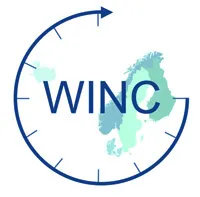8th Working Hours in the Nordic Countries (WINC) Scientific Symposium on 19th May 2022
The 8th WINC annual symposium will be organized on 19th May 2022 in Helsinki, Finland.

The aim of WINC is to support scientific networking on the area of working hours research and to update the scientists to the latest research on the area of working hours, health and well-being. The 8th WINC annual symposium will be organized 19th May 2022 (9:30 am – 5 pm, Finnish time) in Helsinki. WINC 2022 will include a plenary lecture: “Employer-owned register data of working hours – new approaches using objective working hour characteristics for studies of health and wellbeing in service sector”, by prof. Annina Ropponen, FIOH, and oral presentations and posters on working hours research intended to scientists on the area. It is possible to join the symposium also virtually, but we recommend physical participation to support networking!
Please find the final scientific program enclosed. The deadline for registration is 9th May 2022, please register here. The deadline of submitting abstracts has passed.
The symposium will start with a networking dinner in Helsinki City the day before, on 18th May at 7 pm (at own expence). The Symposium will be organized in Folkhälsan, Topeliuksenkatu 20, Helsinki, very close to the FIOH on 19th May. The symposium program (including a lunch) is free of charge, but the participants need to cover their travel and other costs. The recommended hotel to the participants (close to FIOH and Folkhälsan) is Scandic Meilahti, Helsinki
In case of more information on the WINC symposium, please contact prof. Mikko Härmä (mikko.harma [at] ttl.fi (mikko[dot]harma[at]ttl[dot]fi)), Finnish Institute of Occupational Health (FIOH).
Final program - WINC symposium, Thursday 19th May 2022, 09:30–17:00 (UTC+3 East-European summertime)
Venue: Auditorium, Folkhälsan, Topeliuksenkatu 20, Helsinki
|
09:00-09:30 |
Coffee in Folkhälsan canteen |
|
09:30-09:45 |
Opening words Anne Helene Garde (Chair, WINC), Mikko Härmä and Kati Karhula (FIOH) |
|
09:45-10:45 |
Keynote lecture, Chair Mikko Härmä |
|
09:45-10:30 |
Employer-owned register data of working hours – new approaches using objective working hour characteristics in various time windows and clusters for studies of health and wellbeing in service sector |
|
10:30-10:45 |
Discussion: investigating payroll data of working hours – possibilities for co-operation |
|
10:45-11:45 |
Session I: Shift work, health and sleep, Chair Johnni Hansen |
|
10:45-11:05 |
Night work and breast cancer in a cohort of female health care employees in Stockholm – an updated analysis, Per Gustavsson, Sweden |
|
11:05-11:25 |
Estimating the association of night work and sickness absence by use of a case cross-over design based on payroll data, Ann Dyreborg Larsen, Denmark |
|
11:25-11:45 |
Shift work, inflammation and musculoskeletal pain-The HUNT Study, Dagfinn Matre, Norway |
|
11:45-12:30 |
Lunch in Folkhälsan canteen |
|
12:30-13:15 |
Posters (Auditorium, on-site only) |
|
|
Assessing shift-work mediated telomere length alterations in breast cancer patients: A nested case control study among Norwegian nurses, Mrinal Kumar Das, Norway Recruiting companies to the Norwegian working time registry (A-TID), Julie Hjelde Ellingsen, Norway Working hours and recovery during the Covid-19 pandemic, Isabella Hernandez, Sweden Sleep and realized working hours among hospital physicians, Kati Karhula, Finland "1001 night": Shift work, biological markers of disease and effects on health, Jonas Kirchheiner-Rasmussen, Denmark Work ability, current life and working conditions among shift workers in a large city in Brazil, Ines Monteiro, Brazil Reaction time measures among shift workers, Martine Pedersen, Norway |
|
13:15-14:15 |
Session I continues, Chair Dagfinn Matre |
|
13:15-13:35 |
A longitudinal study of work time schedule and prescribed sleep medication use in Norwegian nurses, Ingeborg Forthun, Norway |
|
13:35-13:55 |
Night and shift work characteristics and incident ischemic heart disease and atrial fibrillation among healthcare employees – preliminary findings from a prospective cohort study, Carolina Bigert, Sweden |
|
13:55-14:15 |
Acute effects of timing and content of meals during night shift work, Anne Helene Garde, Denmark |
|
14:15-14:45 |
Break and coffee in Folkhälsan canteen |
|
14:45-15:30 |
Session II: Working hours, sleep and recovery, Chair Anna Dahlgren |
|
14:45-15:00 |
Impact of sleep timing on attention, sleepiness, and sleep quality among shift workers, Wan-Ju Cheng, Taiwan |
|
15:00-15:15 |
Changes in the work schedule of nurses related to the COVID-19 pandemic and its relationship with sleep and turnover intention, Ingebjørg Djupedal, Norway |
|
15:15-15:30 |
Self-reported sleepiness after 2, 4 and 7 consecutive night shifts and recovery days in Danish police officers, Marie Aarrebo Jensen, Denmark |
|
15:30-16:00 |
Break |
|
16:00-17:00 |
Session III: Working time arrangements and recommendations, Chair Marie Aarrebo Jensen |
|
16:00-16:15 |
Need for Recovery in Employees with Flexible Work Arrangements: Effects of Work-time Control, Work-related ICT use and Overtime Work, Johanna Edvinsson, Sweden |
|
16:15-16:30 |
Work environment characteristics among marginal part-time workers in Denmark, Anne Helene Garde, Denmark |
|
16:30-16:45 |
National recommendations for shift scheduling in healthcare: A 5-year prospective cohort study on working hour characteristics, Mikko Härmä, Finland |
|
16:45-17:00 |
Closing of the meeting and announcement of the next WINC symposium Anne Helene Garde |
What is WINC?
The main aims of the WINC symposium are to share new research results and to support networking of the working time researchers in the Nordic countries. For more information about the WINC network, please see http://nfa.dk/winc.

Further information

